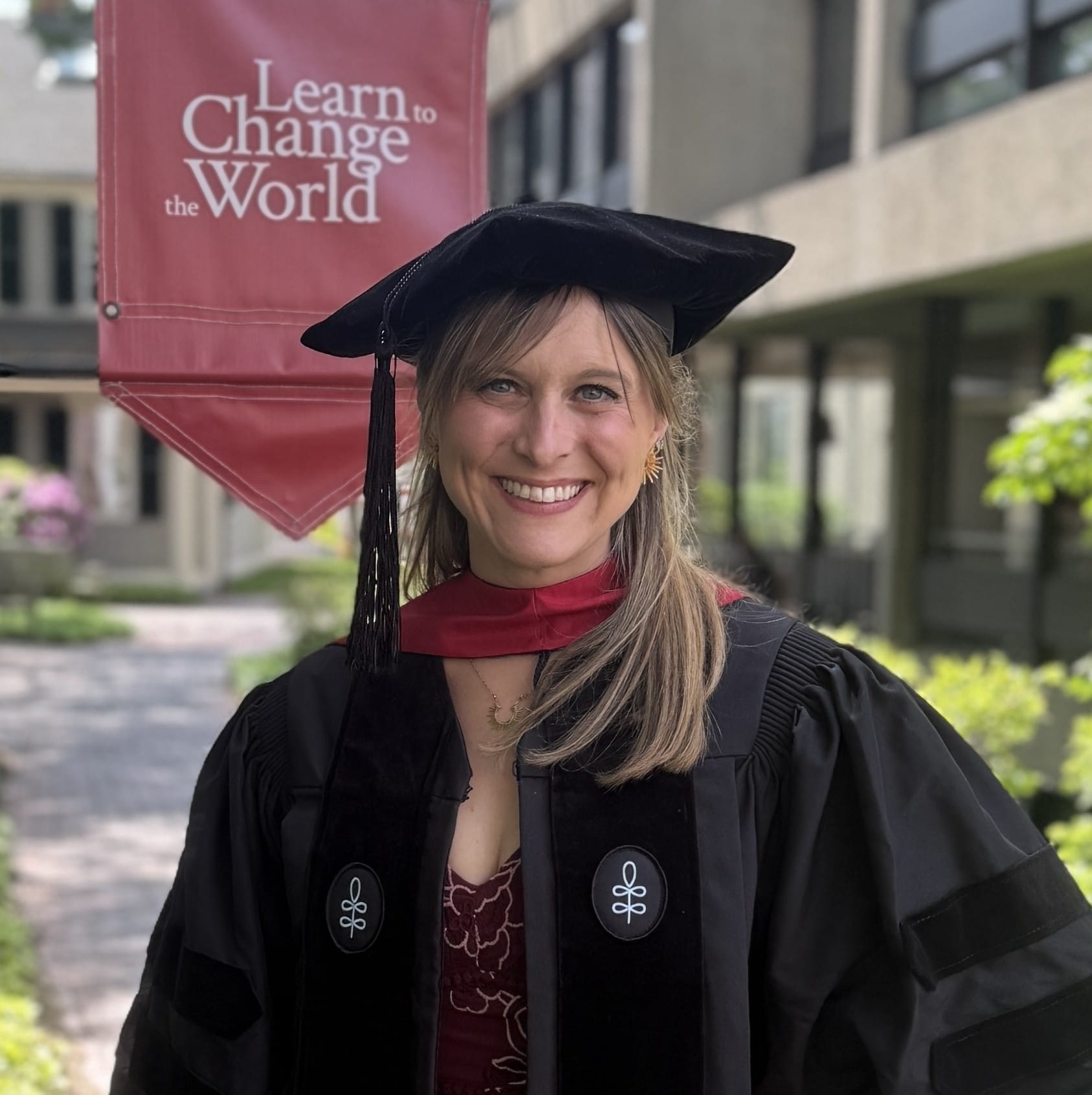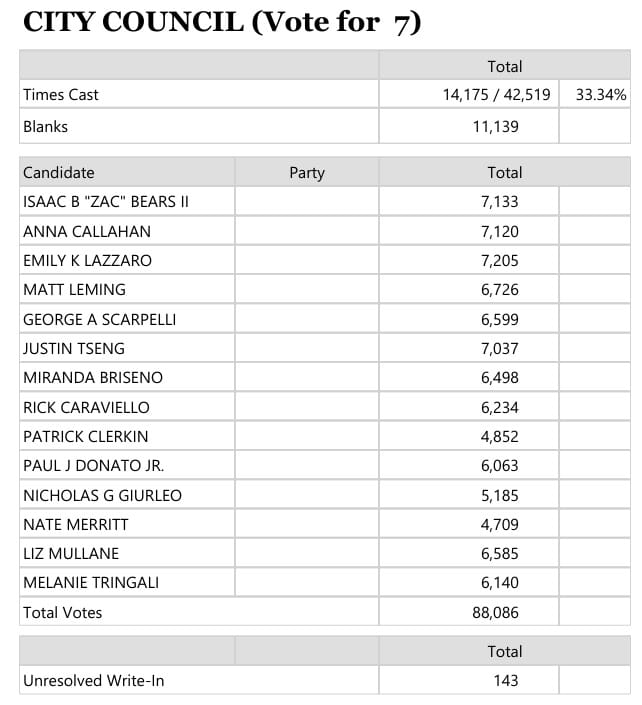Meet School Committee candidate Dr. Lisa Kingsley

How many years have you lived in Medford?
I’ve lived in Medford for 12 years with my husband, David, and our three children, all of whom attend Medford Public Schools.
Please describe your professional background and education.
I began my career as a special education teacher in New York City, where I saw how policies and resources directly shape opportunities for students.
After working in both public districts and charter schools in Massachusetts for the next ten years, I served as principal of Curtis Tufts High School in Medford and later as a district administrator in Malden, where I oversaw therapeutic programs and alternative pathways. In those roles, I strengthened systems of support for students and families, expanded programs like BRYT (Bridge for Resilient Youth in Transition), and managed more than $1million in partnerships to deepen collaboration.
I’ve also contributed at the state and national levels, co-leading the final stage of the Massachusetts IEP redesign, coaching superintendents through Harvard’s Data Wise project, and advising education organizations as a Senior Strategic Advisor at 2Revolutions. I hold a Doctorate in Education Leadership from Harvard, a master’s in education from City College of New York, and a bachelor’s degree from Loyola University Chicago. I am licensed in Massachusetts as a superintendent, principal, and special education administrator.
What, if any, city positions (appointed or elected) have you held, and for how long?
This is my first run for elected office. While serving as principal of Curtis Tufts High School, I participated as a member of the school committee’s Special Education subcommittee.
What volunteer roles have you participated in that you feel have made a difference in Medford?
I co-lead a Girl Scout troop, coach Girls on the Run, and serve on the Medford Family Network Advisory Board, including time as board chair. In each of these roles, I work to empower young people, support families, and strengthen community connections. For the past ten years, I’ve also volunteered at the Medford Family Network swaps, helping hundreds of families access clothing and supplies. Along with other school and community events, these roles have kept me deeply connected to families and given me a clear view of both our strengths and the challenges we need to tackle together.
Why should residents vote for you?
Vote for me because I am laser focused on the core responsibilities of the school committee: setting clear priorities, hiring and supervising the superintendent, and ensuring accountability for results across the board. My approach is student-centered and nonpartisan, as the role is designed to be.
Setting clear priorities: Right now, Medford has no strategic plan or shared vision for instruction. Our meetings are not consistently centered on student outcomes or the data we need to govern effectively, and parents are too often left out of true partnership. If elected, I will push for a community-driven plan that sets clear goals, tracks progress and ensures accountability.
Hiring and evaluating the superintendent: With a permanent superintendent to be hired during this term, the Committee’s most important job will be running a fair, transparent process that reflects community voice. With my superintendent’s license, experience as a Medford principal, and background as a special educator, I am well prepared to identify the leadership qualities our district needs and to hold the superintendent accountable for equity, student learning, and authentic family partnership.
Tell us …
Why are you running or running again for School Committee, what changes do you believe you can facilitate?
I’m running because through my deep experience in education, I’ve seen what great school governance looks like, and I know we can achieve that here in Medford. I've witnessed firsthand how strategic, transparent, and accountable school committees create environments where parents become true partners, educators receive the clarity and support they need to excel, and students thrive in schools that are genuinely accountable for their learning and growth. Most importantly, I’ve seen how effective leadership can transform outcomes for students and families who face the greatest challenges, and I’m committed to bringing that focused approach to our community.
My expertise in special education, student-centered instruction, data-driven decision making, education policy, and system design will help me ask the right questions, set clear goals, and hold the district accountable for meeting them.
This election also brings a rare and pivotal opportunity. With an interim superintendent in place, a permanent contract will be offered during this term. Selecting that leader is the most important decision we face. As a Medford parent, former school leader, and licensed superintendent, I am ready to help lead a fair, open process that reflects the community’s voice. We need an innovative leader who will take an honest look at what’s working, identify where we need to grow, and partner with families and educators to move Medford forward.
What do you see as the top issue with the School District?
The biggest issue is that Medford does not have a real strategic plan or a clear, shared vision for teaching and learning. Families, educators, and the community need to know what good instruction looks like and how we’ll measure progress, and this can’t just be posters with buzzwords. Without a roadmap, decisions get made one at a time, meetings lose focus on student success, and accountability is uneven.
Capital planning is urgent and necessary, but without direction, those decisions risk addressing facilities without advancing student learning. Whether we are responding to overcrowding in our elementary schools or planning for a new high school, every investment in buildings and staffing must be tied to a bigger vision for what we want our schools to achieve.
We need a community-driven plan that sets real goals for instruction, explains how we will track progress, and builds trust through transparency. With strong governance and the right leadership, Medford can move from scattered decisions to a shared vision that truly serves all students.
With potentially deep cuts in federal funding and a local budget stretched thin, what are your budgeting priorities and how do you propose to make them happen?
This is the right concern but the wrong timing for the question. A budget is only as strong as the plan it is meant to fund. Without strategic priorities in place, and a superintendent accountable for carrying them out, any list of budget priorities risks being guesswork rather than governance.
Under Massachusetts law, the role of the School Committee is to review and approve budgets for public education in the district. The Committee does not write the budget itself; that responsibility belongs to the superintendent. An individual member’s budget priorities are therefore far less impactful than the body’s ability to set direction and hire a transformational leader who can propose an innovative, inclusive budget. That is why the upcoming superintendent search is so pivotal.
That said, as someone who has spent my career focused on equity, my track record consistently demonstrates my priorities: protecting classroom teaching by supporting the teachers, materials, and instruction that drive learning; supporting our most vulnerable students; and keeping schools safe and welcoming. Nothing is more important in a school district. I have managed multi-million-dollar education budgets and know how to stretch limited dollars to meet ambitious goals, but that only works when there is agreement on what we are trying to accomplish.
What role should the community play in supporting the education of children?
Strong schools are built through partnership. Families, educators, city leaders, and community organizations all play a role in helping students thrive, yet Medford does not consistently treat families as full partners. That needs to change.
The school committee should set the expectation that family and community partnership is a core goal for which the superintendent is accountable. That means creating structures where parents’ voices shape decisions, especially for families navigating special education or language access. It also means building stronger connections with community organizations to expand enrichment, after-school programs, and real-world learning opportunities. When schools and communities work together, we create the conditions for every child in Medford to learn, grow, and succeed.
What book is currently on your nightstand? (just for fun)
I’m reading “Leading Strategically,” a new book from my former professor Liz City and her colleague Rachel Curtis, which feels timely as I think about how school committees can guide real change. I’m also reading “Together Tea” by Marjan Kamali, a novel my mom passed along that has been a welcome change of pace from my education reading.




